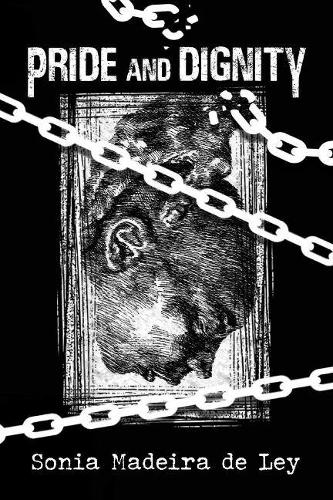
Pride and Dignity
(Paperback)
Publishing Details
Pride and Dignity
By (Author) Sonia Madeira de Ley
BookBaby
BookBaby
29th June 2021
United States
Classifications
General
Non Fiction
Physical Properties
Paperback
256
Width 152mm, Height 228mm, Spine 15mm
394g
Description
Cecilia meets Tancredo in 1934 but after some months of torrid romance he disappears. She doesn't understands what happened and tries to live her life, but never forgets him.
Years later, Tancredo shows up again. He had been imprisoned for political reasons.
In flashbacks, the story of Cecilia is told. She is the great-granddaughter of the Viscount of Itaboray, a Portuguese nobleman who went to Brazil with Don Joo VI, the King of Portugal, when the latter fled from Napoleon's invasion of Portugal and other European countries.
After his arrival in Brazil, the Viscount impregnated an enslaved Black woman, but took good care of his only son with her, giving him a good education and an inheritance.
Cecilia's mother, the Viscount's spoiled granddaughter, marries a Portuguese merchant in Brazil and moves with him to Portugal when he returns to his homeland in 1914. She experiences a lot of prejudice against her as a Black woman and returns to Brazil leaving her four daughters behind in Portugal.
The story of Tancredo is also told. He is the scion of a traditional family of Brazilian coffee barons who becomes a communist leader and is later persecuted by President Getlio Vargas during his dictatorship in the 1930's and 40's.
The story is set in the events of history, during the times when the characters lived and in which, in one way or another, they took part or were witnesses. These events include the construction of the Madeira-Mamor railway through the Amazon Rainforest to Bolvia at the beginning of the 1900's; the First World War and the 1918 "Spanish" Flu Pandemic, when it is believed 50 million people died; the Civil War in Spain and the Brazilian dictatorships in the 1940's, 60's, and 70's.
Author Bio
Sonia Madeira de Ley was born in the city of Rio de Janeiro, Brazil. She received her Bachelor's Degree in Languages (Portuguese and English) from the Universidade Federal do Rio de Janeiro in 1964. In 1968, Sonia travelled to the United States to study in the School for International Living, in Vermont which curriculum included English spoken and written, American Studies and Secretarial Work.
Back to Brazil in 1970, she began her graduate studies at night, working during the day to support her family. Sonia received her Law Degree from Faculdades Estcio de S in 1975.
Ms. Madeira de Ley started her career working in the Rio de Janeiro branch of Coca-Cola International as a bi-lingual secretary but as soon as she got her Law Degree, she was transferred to the Legal Department of the company, where she worked for some years.
Because of her outgoing personality and skills not only in Law but also in communication, she was quickly invited to start a Communications Department in the company in 1977.
Sonia rose to be the first female executive in the company for all Latin America and Europe, opening an era of opportunities for women in the big corporations.
The small Communications Department grew under Sonia's leadership and became the External Affairs Department, comprised of Community Relations, Press Relations and Consumer Relations.
Under Ms. Madeira de Ley's leadership, Coca-Cola was the first company in Brazil to start a Call Center for consumers. She implemented several projects to sponsor the arts, theater and books of art and photos of the natural environment. The External Affairs area of the company was also in charge of the incentive trips for Coca-Cola bottlers, giving Sonia the opportunity to travel around the world.
Sonia retired in 1997. Since then she has dedicated her time to volunteer work, to reading and writing, and to travel.
